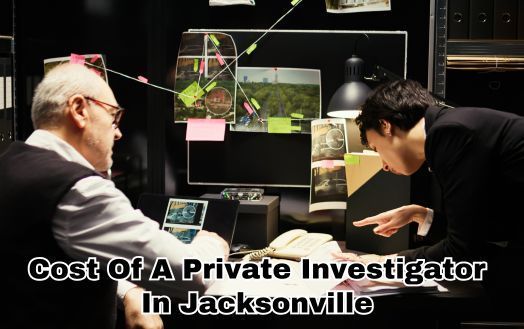Can Private Investigators Spy On Cell Phones

As a private investigator, I am constantly exploring new ways to gather information and uncover the truth. But can private investigators spy on cell phones? One of the questions that often comes up in my line of work is whether or not private investigators can spy on cell phones. The answer to this question is not as straightforward as you might think and requires an understanding of both the laws governing our profession and the tools at our disposal.
In today's digital age, where most people rely heavily on their cell phones for communication, it is only natural that they would become a potential target for investigation. However, when it comes to spying on cell phones, there are legal boundaries that must be respected.
As private investigators, we have access to certain tools and techniques that allow us to monitor phone activity within these legal limits. Whether it's tracking call records, text messages, or even GPS location data, we can leverage these resources to gather valuable evidence for our clients.
Can Private Investigators Spy
Can private investigators really spy on your cell phone without you even knowing it? This is a question that has been asked by many people who are concerned about their privacy and the security of their personal information.
As a private investigator myself, I can tell you that yes, it is possible for us to track and monitor cell phones as part of our investigations. With advancements in technology, we now have access to sophisticated tools and techniques that allow us to gather evidence from cell phones in a discreet manner.
Private investigators have the expertise and resources to conduct phone investigations effectively. We can retrieve deleted text messages, call logs, and even GPS location data from a target's cell phone. By analyzing this information, we can uncover valuable insights that may help solve cases or provide evidence in legal proceedings. It's important to note that these activities are conducted within the boundaries of the law and with proper authorization.
Investigator services go beyond just spying on cell phones. While tracking someone's phone might be one aspect of an investigation, there are various other services we offer as well. From background checks to surveillance operations, private investigators are skilled at gathering information discreetly and ethically. Whether it's locating missing persons or uncovering hidden assets during divorce proceedings, our goal is always to deliver accurate results while respecting the privacy rights of individuals involved.
As technology continues to evolve, so do the methods used by private investigators. We stay updated on the latest advancements in digital forensics and investigative techniques to ensure we provide effective services for our clients. So if you ever find yourself in need of an expert who can help unravel mysteries or gather evidence using cutting-edge tools, consider reaching out to a private investigator like me.
Investigator Services

Utilizing modern technology, experts in the field employ advanced methods to discreetly gather information from electronic devices. Private investigators have access to a range of tools and techniques that enable them to spy on cell phones effectively.
One such method is the use of spyware cellphone applications that can be installed on a target's device without their knowledge. These applications allow private investigators to remotely monitor calls, messages, browsing history, and even track the GPS location of the phone.
Phone tracking is another service offered by private investigators. With the help of specialized software, they can trace the location of a cell phone in real-time. This can be particularly useful when trying to locate missing persons or gathering evidence for legal cases. By analyzing data from cell towers and satellite signals, private investigators are able to pinpoint the exact whereabouts of a phone.
In addition to these services, a skilled private investigator can also retrieve deleted information from cell phones. They have access to forensic tools that can recover deleted text messages, photos, videos, and other digital data that may be vital in an investigation. By extracting this hidden information, private investigators uncover valuable evidence that could potentially make or break a case.
Transitioning into the next section about 'phone surveillance,' it is important to note that while these investigative techniques may seem intrusive, they play a crucial role in maintaining safety and security in today's digital world.
Phone Surveillance
If you want to ensure your personal information remains secure, consider the benefits of phone surveillance services offered by experts in the field. Phone surveillance is a valuable tool used by private investigators to gather crucial information during their investigations.
With advancements in technology, private investigators are now equipped with sophisticated tools and techniques that allow them to spy on cell phones discreetly and effectively. By tapping into someone's phone, investigators can access text messages, call logs, social media activity, GPS location, and even retrieve deleted data. This level of access can provide valuable insights and evidence for a wide range of private investigation cases.
Phone surveillance has become an essential part of modern-day private investigation because it allows investigators to uncover hidden information that may not be accessible through other means. Whether it's investigating infidelity or conducting background checks, having access to someone's phone can reveal patterns of behavior and communication that are otherwise unknown.
Private investigators use specialized software and techniques to bypass security measures and gain access to target devices covertly.
The use of phone surveillance in private investigations has revolutionized the way cases are solved. It provides a wealth of information that was once unattainable without physically accessing someone's device. By utilizing this technique, private investigators have been able to uncover crucial evidence that has helped solve numerous cases successfully.
However, phone surveillance is just one aspect of the comprehensive services offered by experienced private investigation agencies.
In the next section about 'case investigations', we will explore how these professionals go beyond cell phone spying to bring justice and closure to their clients' cases.
Case Investigations

Imagine being able to unravel complex mysteries, piece together intricate puzzles, and bring justice to those who've been wronged. As private investigators, we possess a unique set of skills that allow us to delve deep into the world of case investigations.
One aspect of our work involves utilizing cutting-edge technology to gather evidence and information. In today's digital age, this often includes the ability to spy on cell phones.
In many cases, obtaining phone records can provide invaluable insights into a person's activities and connections. Private detectives are trained in techniques that allow us to access phone data legally and ethically. We can analyze call logs, text messages, social media activity, and even track a person's location through their mobile device. This information can be crucial in building a strong case or uncovering hidden truths.
However, it's important to note that there are legal boundaries when it comes to using these investigative techniques. Private investigator laws vary from jurisdiction to jurisdiction, and it's vital for us as professionals to stay within the confines of the law. Our goal is always to obtain evidence legally and admissible in court. By adhering to these regulations, we ensure that our investigations remain ethical and protect the rights of all parties involved.
Now that we've explored how private investigators utilize advanced technology in case investigations, let's delve into the specific laws governing our profession.
Private Investigator Laws
As we plunge into the world of case investigations, let's unravel the web of laws that govern our craft. Private investigators are often tasked with gathering information and evidence to assist their clients in various cases. With the increasing prevalence of cell phones in today's society, it's natural for us to explore their potential as tools for investigation.
However, it's important to understand that there are strict laws surrounding the use of cell phone surveillance by private investigators. When it comes to spying on cell phones, private investigators must adhere to specific legal guidelines. While there may be certain circumstances where monitoring someone's phone activity can be permissible, such actions must always be conducted within the boundaries of the law.
These laws vary depending on the jurisdiction and contextually relevant factors, such as whether consent has been obtained or if there is a reasonable expectation of privacy. In my line of work, I always ensure that I'm well-versed in these laws before conducting any form of surveillance involving cell phones. It's crucial to stay up-to-date with changes in legislation and consult legal professionals when needed. By doing so, I can confidently navigate through complex legal frameworks while providing valuable assistance to my clients.
Now let's delve deeper into the topic by exploring phone privacy laws and how they intersect with our investigative practices.
Without explicitly stating 'step,' it's essential for us as private investigators to understand not only the limits imposed by general privacy laws but also those specific to mobile devices. Privacy concerns surrounding cell phones have become increasingly significant due to their vast capabilities and storage capacities. Therefore, we must carefully examine both sides of this issue: protecting individuals' rights while still effectively conducting thorough investigations using these powerful tools.
Phone Privacy Laws
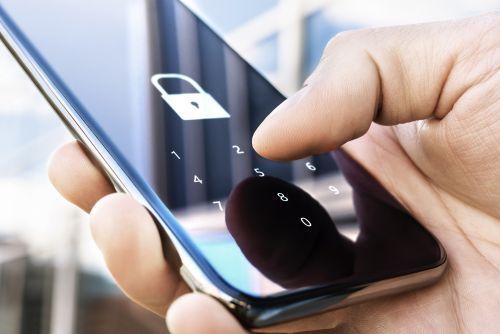
Understanding the legal boundaries surrounding phone privacy is crucial in order to navigate through complex investigative practices. Private investigators must be well-versed in phone privacy laws to ensure they're operating within the limits of the law.
These laws vary from country to country and even from state to state, making it essential for private investigators to stay up-to-date on any changes or updates.
Phone privacy laws dictate what can and cannot be done when it comes to accessing someone's phone records, intercepting text messages or calls, and tracking a person's location using their phone.
Private investigators must always operate within the confines of the law when conducting investigations that involve phones. It's important for them to understand that certain actions may require a warrant or legal permission before they can proceed.
Law enforcement agencies have specific guidelines and protocols that must be followed in order for evidence collected through phone surveillance techniques to be admissible in court. By adhering to these legal requirements, private investigators can protect themselves, their clients, and their work.
Phone privacy laws exist not only to protect individuals' rights but also to ensure that investigations are conducted ethically and legally. As private investigators, we strive to provide our clients with accurate information while respecting their privacy rights. This means understanding the boundaries set by the law and finding innovative ways to gather evidence without overstepping those boundaries.
In the next section about investigator techniques, we'll explore some effective methods used by private investigators that adhere strictly to these legal principles.
Investigator Techniques
When it comes to phone privacy laws, there are strict regulations in place to protect individuals from unauthorized access to their personal information. However, private investigators have developed techniques that allow them to gather evidence by conducting surveillance. But can private investigators spy on cell phones? These investigators use cutting-edge technology and sophisticated methods to track and monitor the activities of individuals, often without their knowledge or consent.
Private investigators employ a variety of techniques when it comes to spying on cell phones. They may use specialized software that allows them to remotely access a target's device, enabling them to view text messages, call logs, emails, and even listen in on phone conversations. Additionally, they may utilize GPS tracking devices or software that can pinpoint an individual's location at any given time. These investigator techniques provide valuable information that can be used as evidence in legal cases or for personal investigations.
While these techniques may seem intrusive and ethically questionable, they are legal in certain circumstances where the investigator has obtained proper authorization. Private investigators play a crucial role in gathering evidence for various purposes such as criminal defense cases or uncovering potential marital infidelity. It is important to understand the limitations and responsibilities of private investigators when it comes to spying on cell phones.
In the next section about 'cell phone tracking', we will explore how advancements in technology have made it easier than ever for private investigators to track an individual's movements using their cell phone signal.
Cell Phone Tracking
You'll be amazed at how easily your movements can be tracked through the signal of your smartphone. With the advancement of technology, cell phone tracking has become a powerful tool for private investigators. They can use various methods to monitor and gather information from cell phones, allowing them to acquire valuable evidence for their investigations.
By utilizing specialized software and techniques, these investigators can spy on cell phones discreetly and effectively. Cell phone tracking is an essential tool for private investigators when conducting surveillance or gathering evidence. Through this method, they can monitor someone's location in real-time by accessing the GPS data from their smartphone. This information can be crucial in determining a person's whereabouts and activities at any given time.
Moreover, private investigators can also access call logs, text messages, social media accounts, and other personal data stored on the target's phone. The ability to track cell phones not only provides valuable evidence but also allows private investigators to conduct effective surveillance operations.
They can remotely activate the microphone or camera of a target's phone to listen in on conversations or capture visual evidence without being physically present. This level of surveillance enables them to gather compelling proof that can support their investigations.
Investigation Services
One of the valuable services offered by professional investigators is their expertise in gathering evidence and conducting thorough investigations. Private investigators are highly skilled at utilizing advanced technology to gather information, including cell phones. With the permission of their clients, they can access a wide range of data from cell phones to aid in their investigations.
Cell phone spy software is one tool that private investigators use to gather information. This software allows them to remotely monitor and track activities on a target phone, such as text messages, call logs, GPS location, and even social media activity. By using this technology, investigators can uncover crucial evidence that may help solve cases or provide valuable insights into a person's actions or motives.
In addition to cell phone spy software, private investigators also employ various other investigation services when it comes to gathering information. They may conduct interviews with potential witnesses or subjects of interest, perform background checks, analyze financial records, or utilize surveillance techniques. These experts understand the importance of thoroughness and discretion in their work and strive to provide accurate and reliable information for their clients.
As part of their comprehensive investigation services, private investigators also employ various surveillance methods to collect additional evidence and gain further insights into a case.
Surveillance Methods
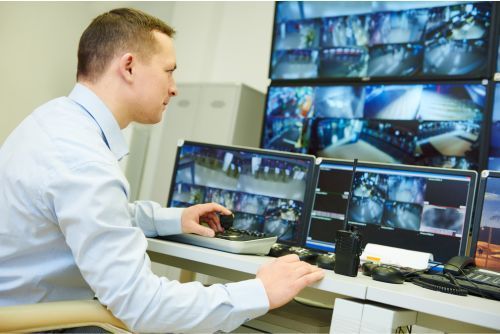
As an investigator, I'm always on the lookout for innovative surveillance methods to gather information. When it comes to conducting surveillance and gathering private information, one question that often arises is whether private investigators can spy on cell phones. Well, the answer is yes! Private investigators have access to advanced technology and tools that allow them to monitor and gather data from cell phones.
Surveillance methods used by private investigators to spy on cell phones are constantly evolving. With the rapid advancement of technology, there are now various techniques available for obtaining information from mobile devices. These methods include GPS tracking, call monitoring, text message interception, and even remote access to social media accounts. By utilizing these techniques, private investigators can effectively gather evidence and uncover valuable information crucial to their investigations.
To engage you further in this topic, here are some intriguing facts about how private investigators conduct surveillance on cell phones:
- Advanced software enables them to track a target's location in real-time using GPS.
- Private investigators can remotely access a phone's call logs and text messages.
- They have the ability to intercept incoming and outgoing calls.
- Social media accounts can be monitored for any suspicious activity or communication.
With such powerful surveillance methods at their disposal, it's clear that private investigators have the means necessary to spy on cell phones effectively. However, it's important to note that while these methods may be legal under certain circumstances, there are strict ethical guidelines that must be followed. This brings us to the next topic: phone privacy rights.
While it's fascinating how technology has enabled private investigators with such capabilities, it's equally important to consider individuals' rights when it comes to their privacy.
Phone Privacy Rights
Imagine having your personal conversations and private information accessible to anyone without your knowledge or consent. In today's digital age, where our lives revolve around our smartphones, it's crucial to understand our phone privacy rights. Can private investigators spy on cell phones? The answer is a bit complicated.
While private investigators can gather information using various surveillance methods, they may not have access to calls or text messages. It's important to note that hacking any electronic device, including phones, is illegal and unethical for both private investigators and individuals.
Private investigators cannot hack any form of electronic device, including phones. As technology advances rapidly, so do the security measures put in place to protect our devices from unauthorized access. This means that even if a private investigator wanted to gain access to your phone's contents, they wouldn't be able to do so legally or ethically. They must adhere to strict laws regarding privacy rights and obtain proper warrants or permissions before accessing any personal information.
However, this doesn't mean that private investigators are completely powerless when it comes to gathering information from cell phones. There are legal ways for them to obtain certain data with the individual's consent or through authorized means such as court orders. For example, they can retrieve public records or social media activity that can provide valuable insights into a person's activities and connections.
While private investigators can't hack into cell phones or access calls and text messages without proper authorization, they can still gather relevant information through legal means. Understanding our phone privacy rights is essential in protecting ourselves from unauthorized surveillance. Now let's delve into the tools and techniques used by private investigators in their quest for truth without stepping over ethical boundaries, as maintaining ethical boundaries is crucial in upholding the integrity of their work and respecting individuals' privacy rights.
Private Investigator Tools
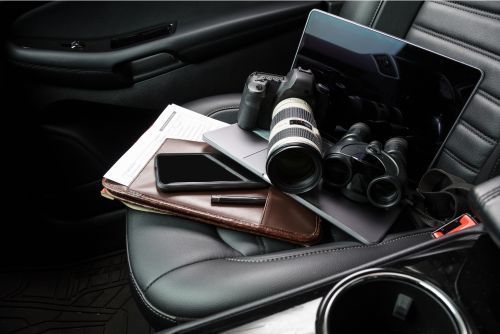
To fully understand the capabilities of private investigators, it's important to explore the wide array of tools at their disposal for gathering information discreetly and efficiently. One tool that these professionals may use to spy on cell phones is tracking software. With this software, investigators can monitor a target's phone activities, such as text messages, call logs, and even GPS location in real-time. This allows them to gather crucial evidence without alerting the individual being investigated.
Another tool commonly used by private investigators is physical surveillance equipment. This includes hidden cameras and audio recording devices that can be discreetly placed to capture conversations or activities of interest. These tools enable investigators to obtain visual or audio evidence that can be used in legal proceedings if necessary.
In addition to technological tools, private investigators also rely on their own skills and expertise when conducting investigations. They possess knowledge in various areas such as research techniques, interviewing strategies, and data analysis. By combining their investigative skills with advanced surveillance technology, these professionals are able to provide comprehensive and accurate information to their clients.
With an understanding of the tools available to private investigators for spying on cell phones, it becomes clear that they have a wide range of capabilities when it comes to gathering information. However, it's important to note that these professionals must adhere to legal and ethical guidelines while conducting their investigations. In the next section about investigator responsibilities, we'll delve into how these professionals balance their use of technology with their obligations towards privacy laws and regulations.
Investigator Responsibilities
Investigators have a crucial role in ensuring that their methods of gathering information align with legal and ethical guidelines. As investigators, it's our responsibility to respect the privacy and rights of individuals while conducting our work.
When it comes to spying on cell phones, we must be aware of the boundaries set by the law and adhere to them strictly. While cell phone surveillance can be an effective tool for gathering evidence, it should only be used within the limits defined by legal authorities.
Our responsibilities as investigators extend beyond simply obtaining information from cell phones. We must also ensure that the data we collect is accurate, reliable, and obtained through lawful means. This means obtaining proper authorization when required and using specialized tools and software that are approved for such purposes. It's essential for us to maintain a high level of professionalism and integrity in carrying out our duties.
As technology continues to evolve rapidly, so do the challenges faced by investigators in monitoring cell phones. It's important for us to stay updated with the latest advancements in this field while keeping in mind our ethical obligations. By staying informed about new developments in phone monitoring techniques, we can better serve our clients' needs while respecting legal boundaries.
With these responsibilities in mind, let's now delve into the topic of 'phone monitoring' and explore how investigators can effectively gather valuable information from cell phones without infringing upon anyone's rights or privacy.
Phone Monitoring
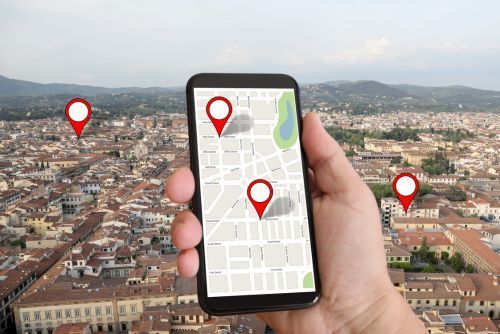
As technology advances, it becomes increasingly important for professionals in the investigative field to stay informed about the latest methods of monitoring mobile devices while respecting individuals' rights and privacy.
As an investigator, I understand the significance of phone monitoring in gathering crucial evidence and uncovering valuable information. With cell phones being an integral part of our lives, they often hold a treasure trove of data that can aid in investigations. By utilizing specialized software and techniques, I'm able to spy on cell phones to retrieve text messages, call logs, emails, browsing history, and even track GPS locations.
Phone monitoring allows me to delve deeper into a person's activities and contacts. It provides me with insights that may be crucial in understanding their behavior or uncovering hidden connections. However, it's important to note that this process must be carried out within legal boundaries and with proper authorization.
Privacy laws vary from jurisdiction to jurisdiction, so as an investigator, I must ensure compliance with all relevant regulations when conducting phone monitoring.
Investigation Regulations
Moving forward, it's crucial to be aware of the regulations governing investigations and ensure compliance with them.
As private investigators, we have a responsibility to conduct our work within the boundaries set forth by these regulations. When it comes to spying on cell phones, there are specific rules that must be followed to ensure ethical and legal practices.
Firstly, it's important to note that simply being an investigator doesn't grant us unrestricted access to someone's cell phone. We can't just spy on anyone's phone without their knowledge or consent. There are strict privacy laws in place that protect individuals' rights, including their right to privacy and security of personal information.
To legally monitor someone's cell phone, we need proper authorization such as a court order or written consent from the individual in question. This ensures that we're acting within the confines of the law and respecting people's privacy. It's essential for investigators to understand and adhere to these regulations in order to maintain professional integrity and avoid any legal repercussions.
While private investigators have advanced tools and techniques at our disposal, we must always operate within the framework of established regulations. Spying on cell phones without proper authorization is both unethical and illegal. By following the necessary procedures and obtaining appropriate consent or legal permission, we can conduct investigations effectively while upholding the rights of individuals involved.
Final Thoughts
Can private investigators spy on cell phones? In conclusion, as a private investigator, I can confidently say that we have the ability to spy on cell phones. Through our extensive investigative services, we're able to conduct phone surveillance and gather evidence for various cases.
However, it's important to note that there are laws and regulations in place that govern our actions as investigators. While we do have access to advanced tools and technology that aid us in our investigations, we also have a responsibility to use these tools ethically and responsibly.
Our primary goal is to gather information within the boundaries of the law and ensure that justice is served. Therefore, it's crucial for us as private investigators to stay updated with the latest investigation regulations and adhere to them at all times.
Overall, private investigators play a vital role in uncovering crucial information through phone monitoring and other investigative techniques. It's our duty to serve our clients diligently while respecting privacy laws and maintaining the integrity of our profession.
By following the necessary regulations and using our skills responsibly, we can continue to provide valuable assistance in solving cases and bringing justice where it's due.
Frequently Asked Questions
What Are The Legal Limitations For Private Investigators When It Comes To Cell Phone Surveillance?
When it comes to cell phone surveillance, there are legal limitations that private investigators must adhere to. These limitations vary depending on the jurisdiction and specific laws in place, but generally, private investigators can't engage in certain activities without proper authorization or consent. For example, they can't access someone's personal data or intercept their communications without permission, which is typically illegal.
However, it's important to note that there are circumstances where a private investigator may be allowed to use certain methods of cell phone surveillance if it's done within the boundaries of the law. This could include obtaining a warrant or operating under specific legal exceptions, such as investigating potential criminal activity or protecting national security interests.
It is crucial for private investigators to stay updated on the ever-evolving laws and regulations surrounding cell phone surveillance. This ensures they operate within legal boundaries while providing innovative solutions to meet their clients' needs.
How Do Private Investigators Track Cell Phones Without The Owner's Knowledge?
Tracking cell phones without the owner's knowledge is an intricate process that requires cutting-edge technology and expertise. As a private investigator, I have access to advanced tools and techniques that allow me to discreetly monitor the activities of a target phone.
From installing specialized software to utilizing GPS tracking systems, I can gather information such as call logs, text messages, internet browsing history, and even track the physical location of the device in real-time. By staying up-to-date with the latest advancements in surveillance technology, I can ensure that my methods are both effective and undetectable.
This level of innovation is essential in providing my clients with accurate and reliable evidence while maintaining their privacy throughout the investigation process.
Can Private Investigators Access Deleted Text Messages And Call Logs On A Cell Phone?
Yes, private investigators can access deleted text messages and call logs on a cell phone. Through advanced forensic techniques and specialized software, we're able to retrieve data that's been deleted from the device.
This includes not only text messages and call logs, but also photos, videos, and other types of digital evidence. Our methods are constantly evolving to keep up with the ever-changing technology landscape, allowing us to stay one step ahead in our investigations.
It's this constant drive for innovation that sets us apart in the field of private investigation, ensuring that we provide our clients with the most comprehensive and accurate information possible.
So rest assured, if you have any concerns about deleted data on your cell phone, we have the tools and expertise to uncover the truth.
What Are The Potential Consequences For Private Investigators Who Violate Phone Privacy Laws?
The potential consequences for private investigators who violate phone privacy laws can be severe. As an investigator myself, I understand the importance of following the law and respecting individuals' privacy rights.
If a private investigator were to unlawfully spy on cell phones, they could face legal action, including fines and even imprisonment. Additionally, their reputation as a professional may be irrevocably damaged, resulting in loss of clients and business opportunities.
It is crucial for investigators to stay up-to-date with the constantly evolving laws regarding technology and privacy to ensure that their methods are lawful and ethical. In this era of innovation, it is essential for us as investigators to find new ways to gather information while still respecting the boundaries set by the law.
Do Private Investigators Need To Obtain A Warrant Before Conducting Cell Phone Surveillance?
Before I delve into the question at hand, let's take a moment to consider the thrill of innovation. We live in an era where advancements in technology continuously push the boundaries of what's possible.
Now, turning our attention to whether private investigators need to obtain a warrant before conducting cell phone surveillance, it's important to note that this issue is subject to various laws and regulations that vary by jurisdiction. In some cases, obtaining a warrant may indeed be necessary for such activities, as privacy rights are protected by law.
However, it's essential to stay abreast of any legal changes or specific requirements in your area. As an audience with an inherent curiosity for progress and novelty, we must always keep an open mind and embrace the evolving landscape around us.











